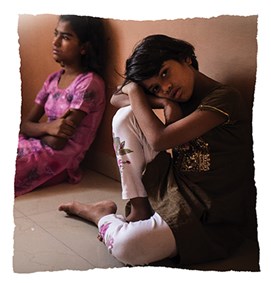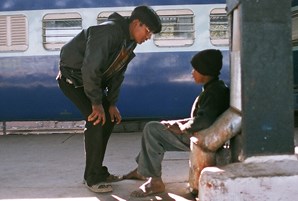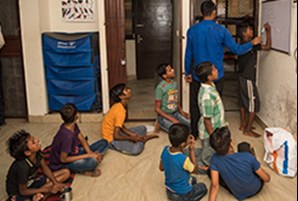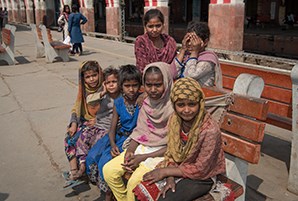The future of our India work hangs in the balance
Our work in India has always been focused on the country’s railway stations. But with the arrival of COVID-19 and the complete lockdown of the country, these have all been closed and we can no longer reach the children who call these chaotic and dangerous places home.
They have no access to washing and hygiene facilities and are at more risk than ever.
Our teams have been trying to support the children and families we have already reunited – many of whom live in poverty and within already fragile communities.
The impact of the virus in terms of health, economy and stability will be devastating on them.
Once the crisis is over we know that more children than ever will head to the cities looking for work or to escape home situations that have become unbearable. They will be easy targets for the traffickers and predators that use the stations as hunting grounds for vulnerable children.
We need to be there to reach them first.
But our projects have suffered a major blow. Three of the locations that we have transformed into safe places over the last few months have been funded by an Indian cinema group. The dramatic impact of closing all cinemas due to the outbreak has been catastrophic for the company. They have had no choice but to withdraw funding for our work.

The future of these projects, that reach and protect hundreds of children a day, is hanging in the balance.
An Indian philanthropist who supports our work at other locations in the country has stepped in and generously offered to fund one station, in Ghaziabad.
But unless we secure new funds for the projects at Raipur and Dadar within the next few weeks we will be forced to withdraw from these locations completely, leaving hundreds of already desperate children alone and in terrible danger.
If we’re not there when children arrive alone and at risk – like Khusi and Satish - traffickers and predators will be.
Help us be there for children who will need us more than ever
Your donations will be spent directly on supporting these two station locations in the first instance and on our wider work in India after that.




